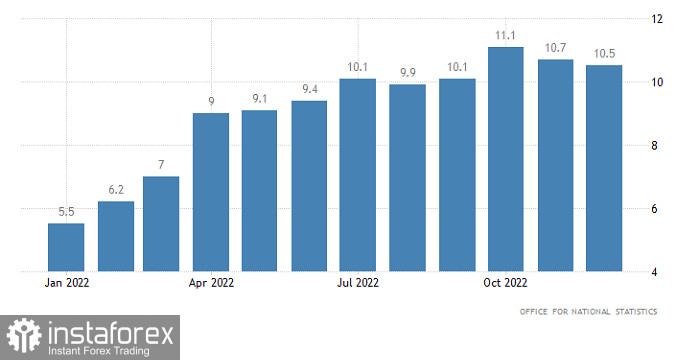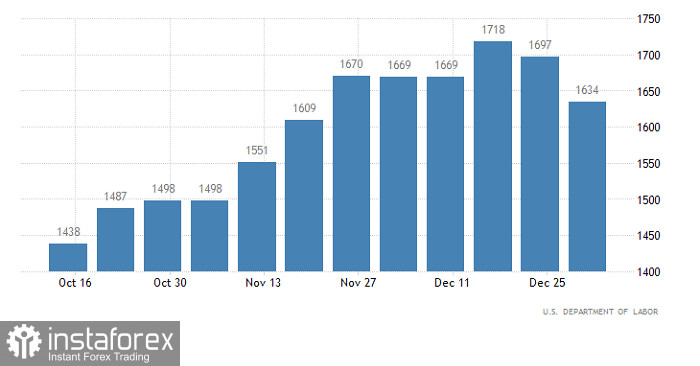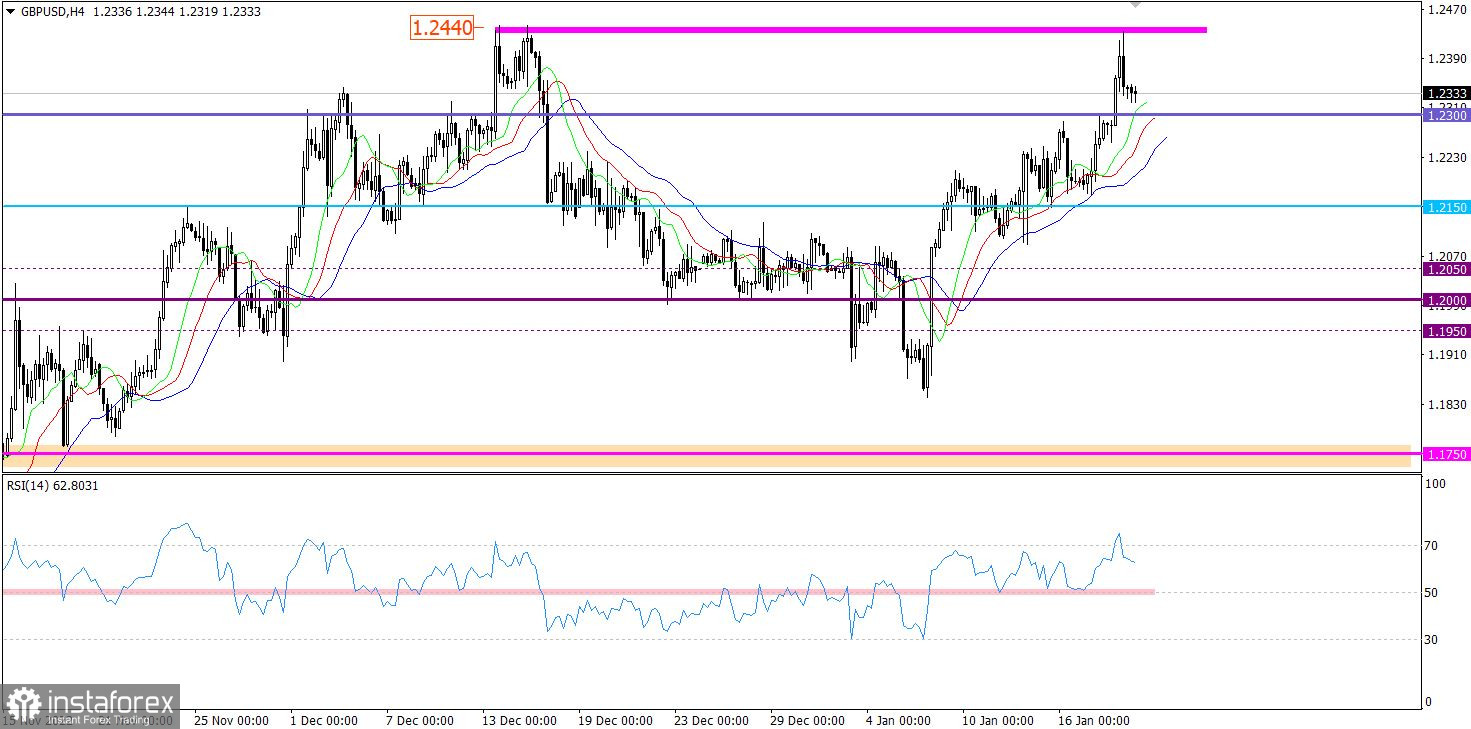UK inflation fell from 10.7% to 10.5% in December, and the pound gradually increased. Inflation eased for the second month, and it hints at the possibility of a more subdued increase in the Bank of England's interest rate. And these very expectations in regard to the Federal Reserve's actions just recently were the reason why the dollar is getting weaker. Moreover, during the previous meeting, two members of the Board argued for rate cuts. So, everything indicates that not only will the US central bank complete its cycle of interest rate hikes soon, but that the BoE could follow suit. And this means there is no reason for the pound to rise substantially. Investors haven't probably realized this fact yet.
Inflation (UK):

But the main reason why the dollar weakened during the European session was the latest US reports, forecasts for it were also negative. In December, U.S. retail sales softened 1.1% and industrial production fell 0.7%. So some pessimism about the dollar was justified. Especially when it became known that previous data had been revised downward. Retail sales climbed 6.0% and industrial production to 2.2%. And if you look at the final industrial report, things got even worse as the growth rate slowed to 1.6%. But the dollar started to rise after the data was released. It's all about retail sales, which remained unchanged with the revision. And this report is significant because it best reflects the state of consumer activity, which is the engine of economic growth. And the data turned out to be significantly better than expected, which of course will inspire confidence that the United States can avoid a recession.
Retail Sales (United States):

First of all, due to the inflationary dynamics in the UK itself, the pound's growth potential is extremely limited. Investors will have to gradually start changing their positions, not in favor of the British currency. But now it has nowhere to go today either. The total number of unemployment claims in the US may grow by 8,000. Of course, the growth itself isn't very significant, but the forecasts are still negative, so there is no reason for the dollar to rise, at least for today. Hence, the market is likely to consolidate around the current values.
Unemployment claims (United States):

GBPUSD crossed the resistance level of 1.2300. As a consequence, the upward momentum gave the pound the opportunity to come close to the December high. The subsequent swing was expressed in a pullback, indicating a decline in the volume of long positions.
On the four-hour chart, the RSI technical indicator was in the overbought area, above the 70 line. This occurred when GBP crossed 1.2300 and approached the December high. Subsequently, there was a price pullback, which is expressed on the RSI indicator by its return below 70.
On the four-hour and D1 chart, the Alligator's MAs are headed upward, which corresponds to the general bullish sentiment.

Outlook
The pullback stage brought the quote back to 1.2300, which, taking into account the current strengthening, is considered as the least possible price change. For the pullback to pass the stage of correction, the quote should return below 1.2250 on the four-hour chart. In this case, GBP could reach 1.2150.
However, staying above 1.2300 may eventually restart long positions in the pound, and it could update the local high of the upward cycle.
Comprehensive indicator analysis suggests a price pullback for the short-term and intraday trading. While the bullish sentiment is still valid for the medium term.
 English
English 
 Русский
Русский Bahasa Indonesia
Bahasa Indonesia Bahasa Malay
Bahasa Malay ไทย
ไทย Español
Español Deutsch
Deutsch Български
Български Français
Français Tiếng Việt
Tiếng Việt 中文
中文 বাংলা
বাংলা हिन्दी
हिन्दी Čeština
Čeština Українська
Українська Română
Română

